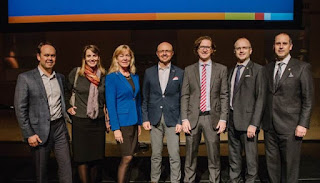Mergers and Acquisitions Fee Guide: Industry Survey Results and Findings.
The most comprehensive study on lower middle market Mergers and Acquisition advisory fees.

Recently, Firmex and Divestopedia partnered to provide transparency into Mergers and Acqisitions fee structures within North America. Their goal was to research fee structures charged for Mergers and Acquisitions by finance experts.
Currently, no mainstream published data exists that offers both buyers and sellers insights into average cost structures, what’s being charged and why. This survey actually is very much needed to help business owners understand why they need the services of finance experts beyond their accountant and what services the fees support.
The survey ran from August through to the middle of October 2016 with 320 responses.
Currently, no mainstream published data exists that offers both buyers and sellers insights into average cost structures, what’s being charged and why. This survey actually is very much needed to help business owners understand why they need the services of finance experts beyond their accountant and what services the fees support.
If you want to get in touch with the author:
John Carvalho, CA, CBV, CF
President
Stone Oak Capital Inc.
The survey ran from August through to the middle of October 2016 with 320 responses.



